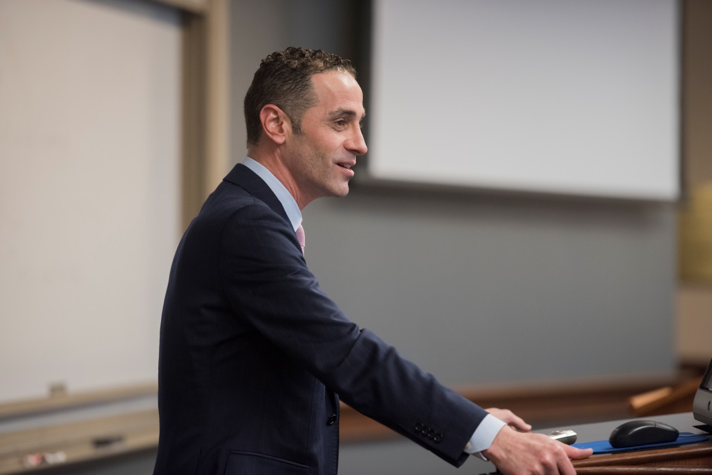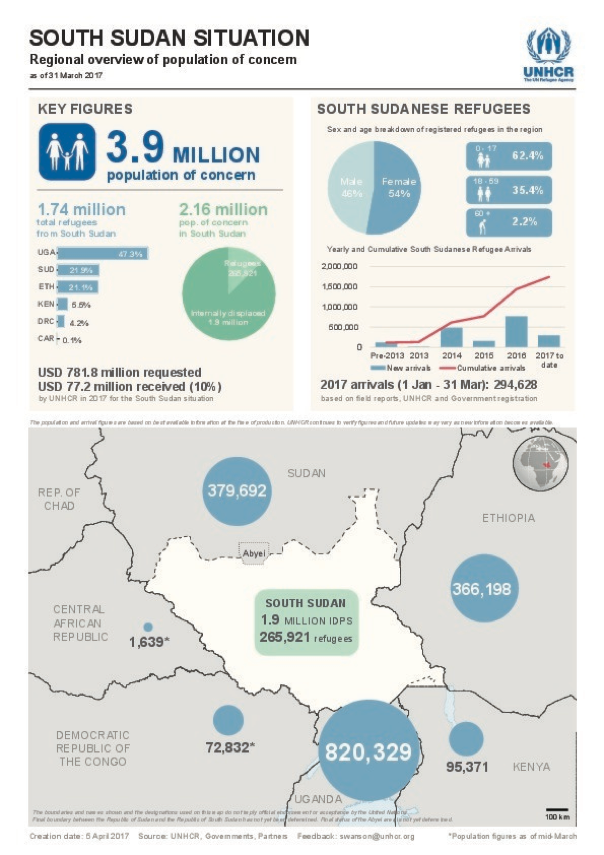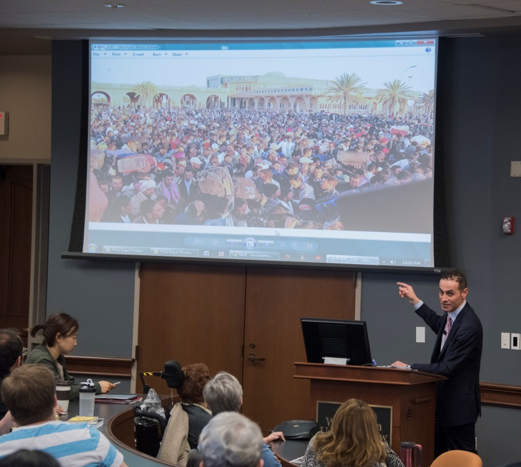By: Fizza Batool

Firas Kayal, Senior Policy Advisor, United Nations High Commissioner for Refugees, New York Office
On March 28th, 2017, Washington University School of Law and the Whitney R. Harris World Law Institute had the privilege of welcoming Firas Kayal, Senior Policy Advisor to the United Nations High Commissioner for Refugees (UNHCR). Coming to Washington University School of Law was a homecoming for Mr. Kayal, who received his LL.M. from Washington University as a Fulbright Scholar. He has since worked tirelessly with UNHCR, the humanitarian arm of the United Nations tasked with protecting and assisting refugees. His lecture on “The Global Refugee Crisis” was a much-needed discussion considering current events.
Mr. Kayal began his lecture by noting that we are living in unprecedented times as there are currently 65 million people displaced worldwide, the highest level of global displacement on record. He also explained the distinction between a migrant and a refugee: whereas migrants leave a country by choice, refugees are forcibly displaced. In contrast to much rhetoric in the news, 86% of refugees are hosted by poor or developing countries. For example, hundreds of thousands of people have fled conflict in South Sudan by crossing into Uganda, which is not a rich state.

March, 2017 statistics on the humanitarian crisis in South Sudan [via UNHCR Data Portal]
Today in Syria, 5 million refugees are being hosted in neighboring States while 6 million have been displaced internally (have not yet crossed an international border). The Syrian population is comprised of roughly 18.5 million people, meaning almost half the country is displaced. Mr. Kayal stressed that the UNHCR provides only the most basic services needed for survival (i.e., a tent, roughly $400, food, water etc.) to refugees that they are able to help.
While the refugee crisis has been building for years, the world woke up in 2015 when refugees in large numbers knocked on the doors of Europe. Europe did not act in a unified way: while States such as Sweden and Germany took a humanitarian approach, other States closed their borders or fired tear gas at migrants and refugees. The Dublin Regulation was created to provide a legal system for examining asylum applications in the European Union, however, as Mr. Kayal noted, it was not designed to deal with people numbering in the millions.
Traditional methods of refugee resettlement are simply not enough to deal with the current global refugee crisis. States articulate the need for a fair distribution system in which rich States help to carry the burden of admitting and resettling refugees in proportion to their resources. One manner of doing so is by offering development assistance to countries hosting refugees. A country such as Lebanon, which is already so small and lacking in resources, cannot be expected to sustain a proportionally huge influx of refugees without aid from other nations. Mr. Kayal also spoke a great deal about the community-based approach in which the United Nations provides various resources to an entire community in resolving problems in order to minimize tensions between refugee populations and local communities within the host country.

Firas Kayal shares photos taken during his time as an UNHCR Protection Officer
While the UNHCR makes a huge difference in the lives of victims of conflict, it can only do so much with the available resources. Mr. Kayal explained how the organization’s work attempts to alleviate the pain and suffering that refugees face; however, the long-term solution to a conflict is always a political one. And the political solution ultimately rests with Member States, including the General Assembly and Security Council.
Watch the full lecture here: https://lecturecapture.wustl.edu/mediasite/Play/6666e8f7b8ff495a941c959546b1751a1d
